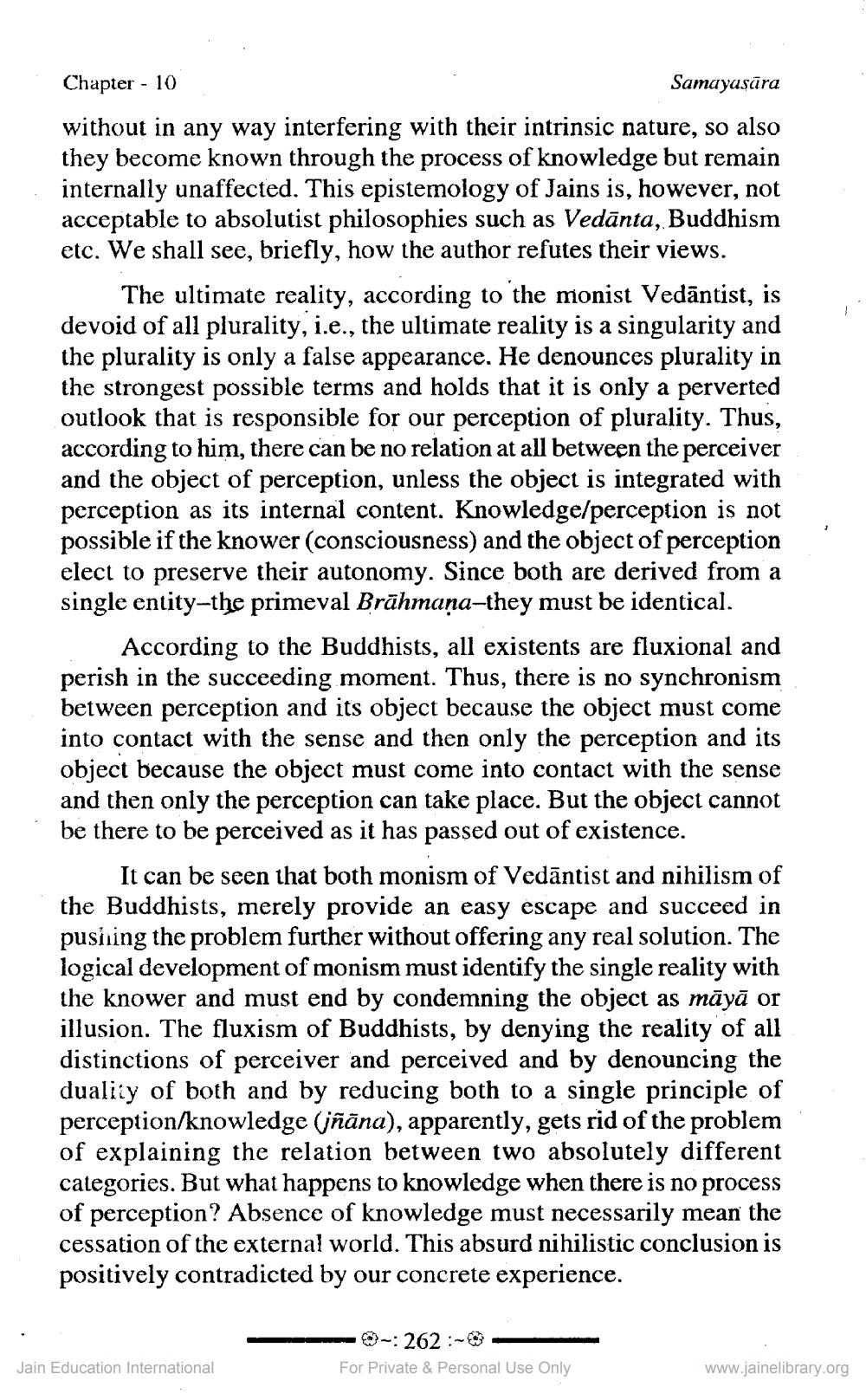________________
Chapter - 10
Samayaşāra without in any way interfering with their intrinsic nature, so also they become known through the process of knowledge but remain internally unaffected. This epistemology of Jains is, however, not acceptable to absolutist philosophies such as Vedānta, Buddhism etc. We shall see, briefly, how the author refutes their views.
The ultimate reality, according to the monist Vedāntist, is devoid of all plurality, i.e., the ultimate reality is a singularity and the plurality is only a false appearance. He denounces plurality in the strongest possible terms and holds that it is only a perverted outlook that is responsible for our perception of plurality. Thus, according to him, there can be no relation at all between the perceiver and the object of perception, unless the object is integrated with perception as its internal content. Knowledge/perception is not possible if the knower (consciousness) and the object of perception elect to preserve their autonomy. Since both are derived from a single entity-the primeval Brāhmaṇa-they must be identical.
According to the Buddhists, all existents are fluxional and perish in the succeeding moment. Thus, there is no synchronism between perception and its object because the object must come into contact with the sense and then only the perception and its object because the object must come into contact with the sense and then only the perception can take place. But the object cannot be there to be perceived as it has passed out of existence.
It can be seen that both monism of Vedāntist and nihilism of the Buddhists, merely provide an easy escape and succeed in pusining the problem further without offering any real solution. The logical development of monism must identify the single reality with the knower and must end by condemning the object as māyā or illusion. The fluxism of Buddhists, by denying the reality of all distinctions of perceiver and perceived and by denouncing the duality of both and by reducing both to a single principle of perception/knowledge (jñāna), apparently, gets rid of the problem of explaining the relation between two absolutely different categories. But what happens to knowledge when there is no process of perception? Absence of knowledge must necessarily mean the cessation of the external world. This absurd nihilistic conclusion is positively contradicted by our concrete experience.
- 262 :- - For Private & Personal Use Only
Jain Education International
www.jainelibrary.org




